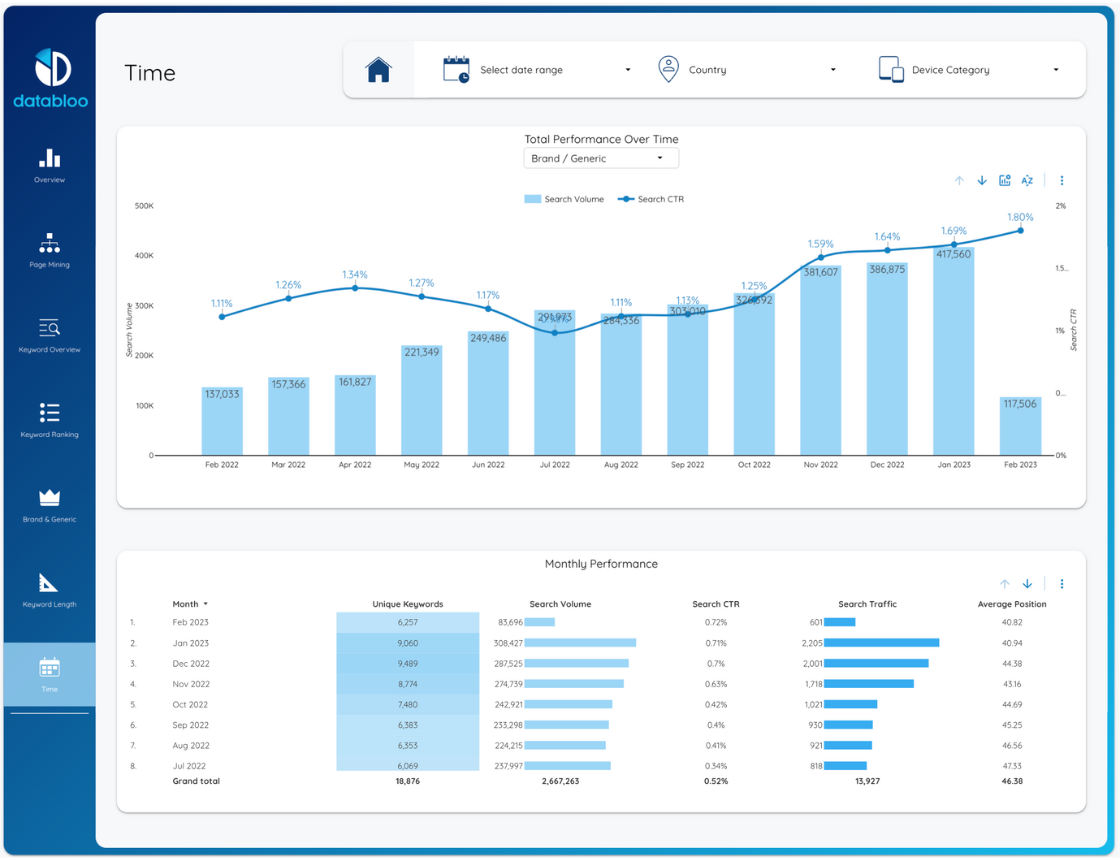Bragging Rights
Explore the latest trends, tips, and stories that make you stand out.
Climbing the SEO Ladder: How to Get Your Keywords on Top
Unlock the secrets to SEO success! Discover proven strategies to elevate your keywords and boost your rankings with our expert tips.
Understanding the Basics of SEO: Key Strategies for Keyword Optimization
Search Engine Optimization (SEO) is a crucial aspect of digital marketing, aimed at enhancing a website's visibility on search engines like Google. One of the fundamental strategies in SEO is keyword optimization, which involves selecting the right keywords to target in your content. This process begins with thorough keyword research, where tools such as Google Keyword Planner or SEMrush can help identify high-volume keywords relevant to your niche. Once identified, these keywords should be naturally integrated into various elements of your blog, including titles, headings, and body text, to signal their importance to search engines.
Another important facet of keyword optimization is understanding user intent behind the searches. This means considering whether users are looking for information, making a purchase, or seeking a service, and tailoring your content accordingly. To further enhance your SEO efforts, consider implementing the following strategies:
- Use long-tail keywords: These are typically less competitive and more targeted, driving quality traffic.
- Optimize meta tags: Ensure your title tags and meta descriptions include relevant keywords to improve click-through rates.
- Monitor and adjust: Regularly analyze your site's performance and make necessary adjustments based on evolving keyword trends.

Top 10 SEO Tools to Elevate Your Keyword Ranking
In the ever-evolving world of digital marketing, SEO tools have become indispensable for website owners looking to enhance their keyword ranking. Here are the top 10 SEO tools that can significantly boost your efforts:
- Moz - Known for its comprehensive suite of SEO tools, Moz offers keyword research, rank tracking, and site audits.
- Ahrefs - A powerful tool for link building and keyword analysis, offering insights into competitors' strategies.
- SEMrush - This all-in-one tool helps you optimize SEO and track your website's ranking for targeted keywords.
- Keyword Tool - A great resource for generating long-tail keywords based on Google Autocomplete.
- Google Search Console - Essential for understanding how Google views your site and improving your visibility.
- Ubersuggest - A freemium tool that provides keyword suggestions, domain data, and content ideas.
- SpyFu - Excellent for competitive analysis, allowing users to see what keywords competitors pay for and rank for.
- Screaming Frog - A desktop program that crawls your website to detect SEO issues.
- Rank Math - A user-friendly WordPress plugin that helps optimize your site's on-page SEO.
- Google Analytics - While primarily an analytics tool, understanding user behavior can help refine your keyword strategies.
Utilizing these SEO tools effectively can elevate your site's performance in search engine results. Always stay updated with the latest features and algorithm updates to make the most out of them. Remember, the key to successful keyword ranking is not just picking the right keywords but also understanding your audience and delivering valuable content that meets their needs.
How to Conduct Effective Keyword Research for Your SEO Success
Conducting effective keyword research is fundamental to your SEO success. Start by identifying the primary topics relevant to your niche and use tools like Moz Keyword Explorer or Ubersuggest to uncover potential keywords. Aim for a mix of short-tail and long-tail keywords, as they cater to different search intents. For instance, a short-tail keyword like 'shoes' can yield high traffic, while a long-tail keyword such as 'best running shoes for flat feet' tends to attract more targeted audiences, leading to higher conversion rates.
Once you've gathered a list of keywords, analyze their search volume and competition levels. Focus on keywords with a solid balance of both; ideally, you want high search volume and low competition. You can further refine your list by leveraging tools like Google Trends to assess how interest in certain keywords has changed over time. Finally, keep in mind that effective keyword research is an ongoing process. Regularly revisit and update your keywords based on emerging trends and shifts in audience interest to maintain and optimize your SEO performance.